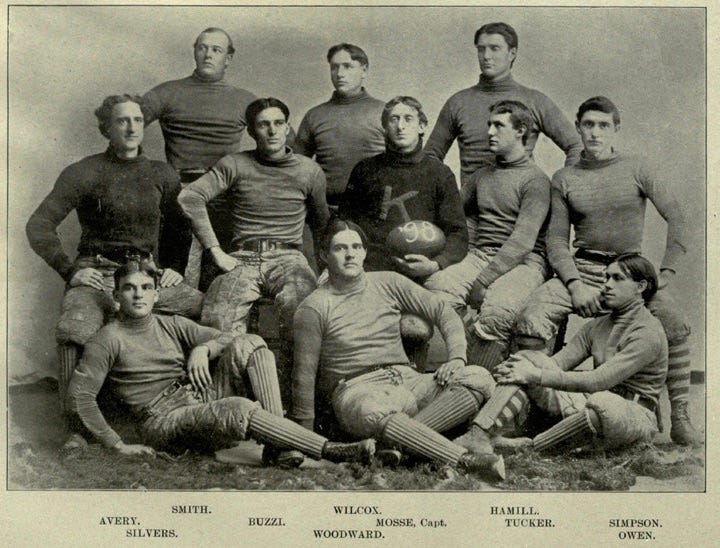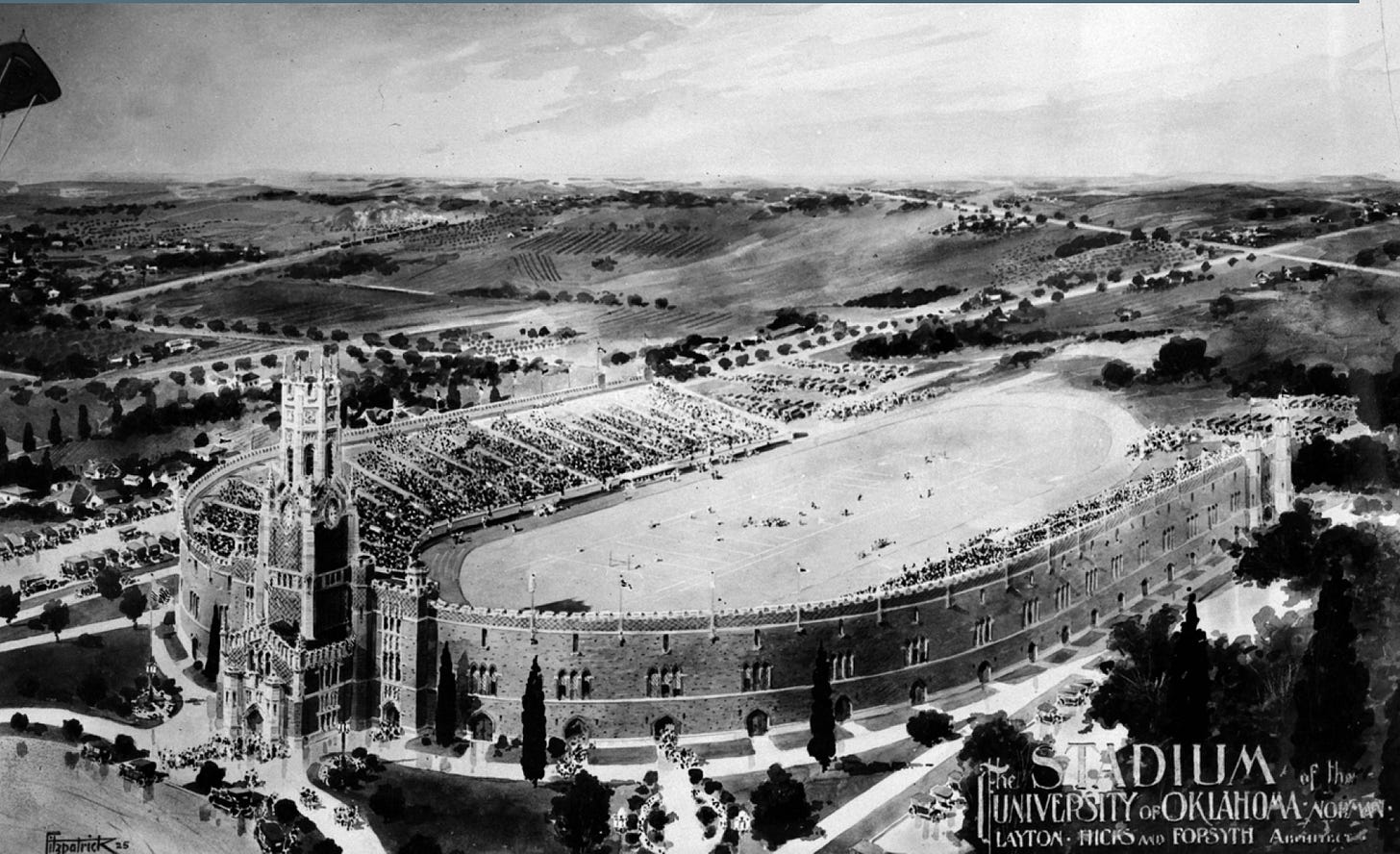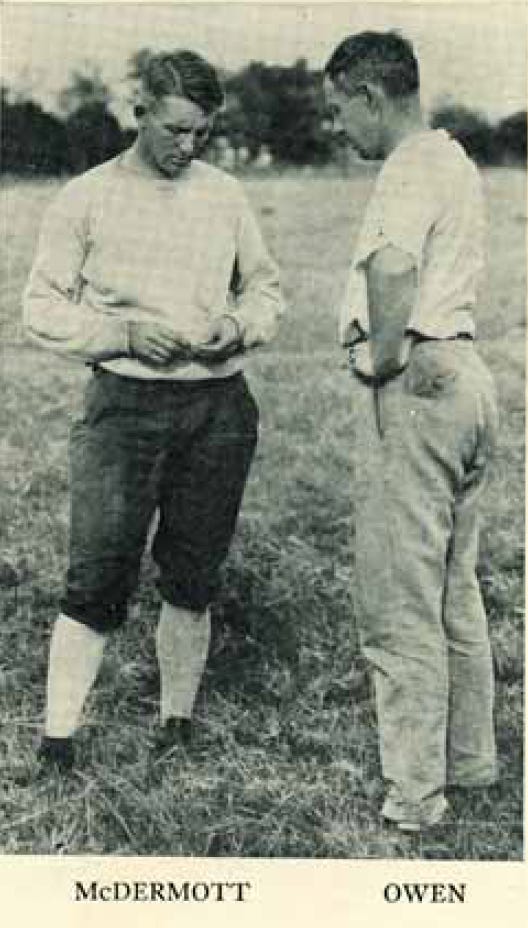Today's Tidbit... Oklahoma's Inspirational Coach, Bennie Owen
We all have gaps in our knowledge, even in fields we think we know well. One of my gaps has been a limited knowledge and appreciation for Bennie Owen, the father of Oklahoma's athletic program.
Born in Chicago in 1875, his family moved around the Midwest and West Virginia before settling in Arkansas City, Kansas, four miles north of the Oklahoma border.
Owen enrolled at the University of Kansas hoping to play baseball but did not make the team, so he joined the football team and became their 130-pound starting quarterback in 1898 and 1899. The 1899 team under Fielding Yost went 10-0.

After graduating, he took over Washburn's team in 1900, going 8-2 before joining Fielding Yost as an assistant at Michigan in 1901 when the Wolverines outscored their opponents 550-0, including a win in the first Rose Bowl.
Owen returned to Kanas for the 1902 through 1904 seasons as head coach at Bethany, where his teams went 22-2-1. Believing Oklahoma had potential, Owen took a pay cut to take over the soon-to-be Sooners football team, getting paid $300 for three months of work while running his restaurant in Arkansas City the other nine.
Owen spent the next 22 years on Oklahoma's sidelines and did not have a losing season until his 18th year there. He also coached the basketball team from 1908 to 1921 and the baseball team from 1906 to 1922.
Throughout his time at Oklahoma, Owen emphasized speed, the forward pass, and scoring a lot. For example, his 1914 team led the nation in scoring, including 25 touchdown passes. His point differential contributes significantly to Oklahoma's scoring more points in program history than any other NCAA school.
Although his football win percentage fell off in the 1920s, he still won 58% of his games in Norman as he raised the program's stature, including gaining admission to the Missouri Valley Conference in 1920 and building Oklahoma's athletic infrastructure. Owen's work allowed the school to initiate fundraising for a permanent campus football stadium, often referred to as Owen Field, built in stages starting in 1925.

The 1926 season was Owen's last as he focused on his athletic director role, a position he held until 1934.
Always regarded as an inspirational leader, his ability to coach three sports at Oklahoma is remarkable for Owen being right-handed until he lost his right arm immediately below the shoulder in a 1907 hunting accident. The accident occurred during the football season, so Owen coached the team from his hospital for several weeks and returned to traveling with the team just over one month after the amputation. Owen subsequently learned to hunt left-handed, drive a tractor, perform other daily tasks without the aid of a prosthetic, and generally moved on with his life.
Following the incident itself, the loss of his arm received little mention in period news articles other than biographies. Yearbooks and other publications typically showed Owen standing in profile with the image shot from his left, though a subset of published images made no secret of losing his arm.
Since Owen coached when head coaches seldom had full-time assistants, he would have handled the bulk of instructions on football, basketball, and baseball techniques by himself and the administrative tasks that came with the three sports.
Bennie Owen was named to the College Football Hall of Fame's inaugural class in 1951 and outlived most of his peers, passing away in 1970 at 94.
Football Archaeology is reader-supported. Click here to buy one of my books or otherwise support the site.





Great post! An (unjustifiably) not-quite-forgotten figure, everywhere except in the Sooner State.